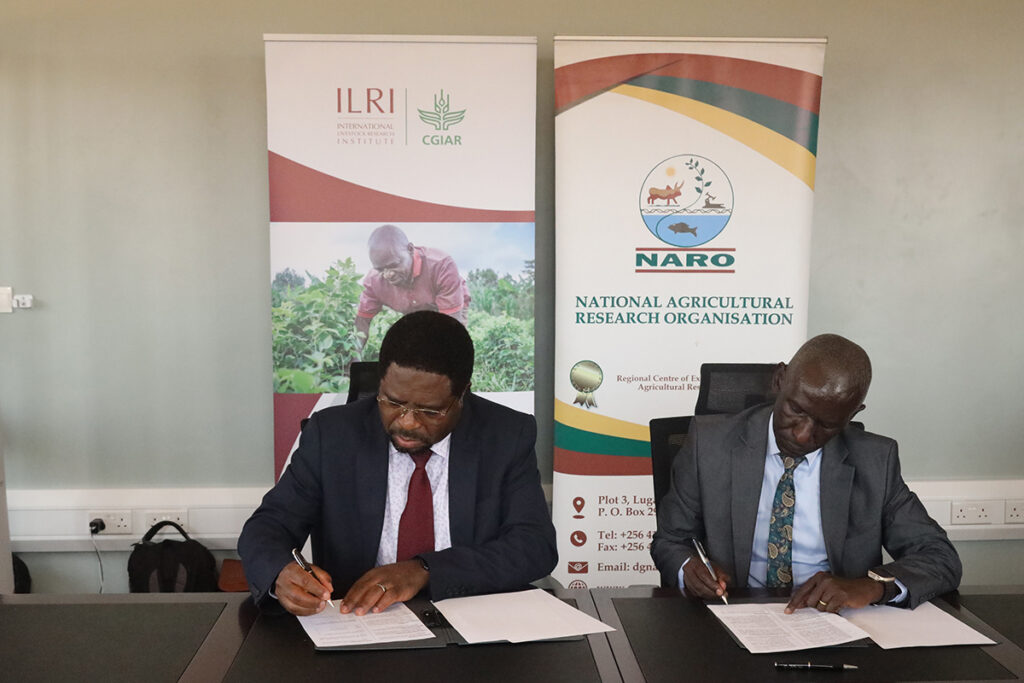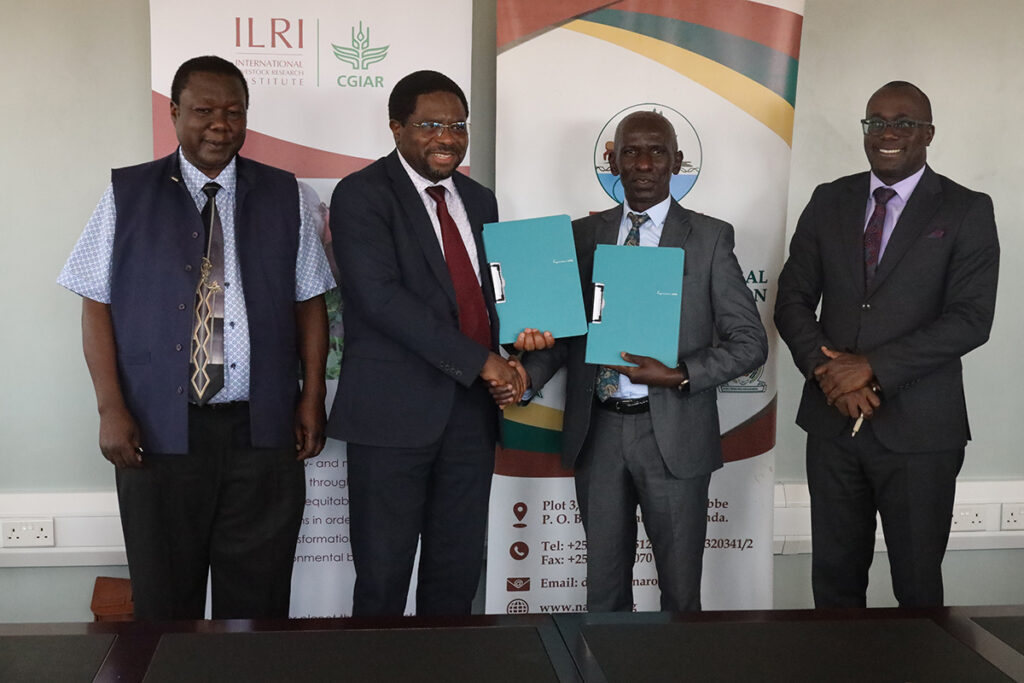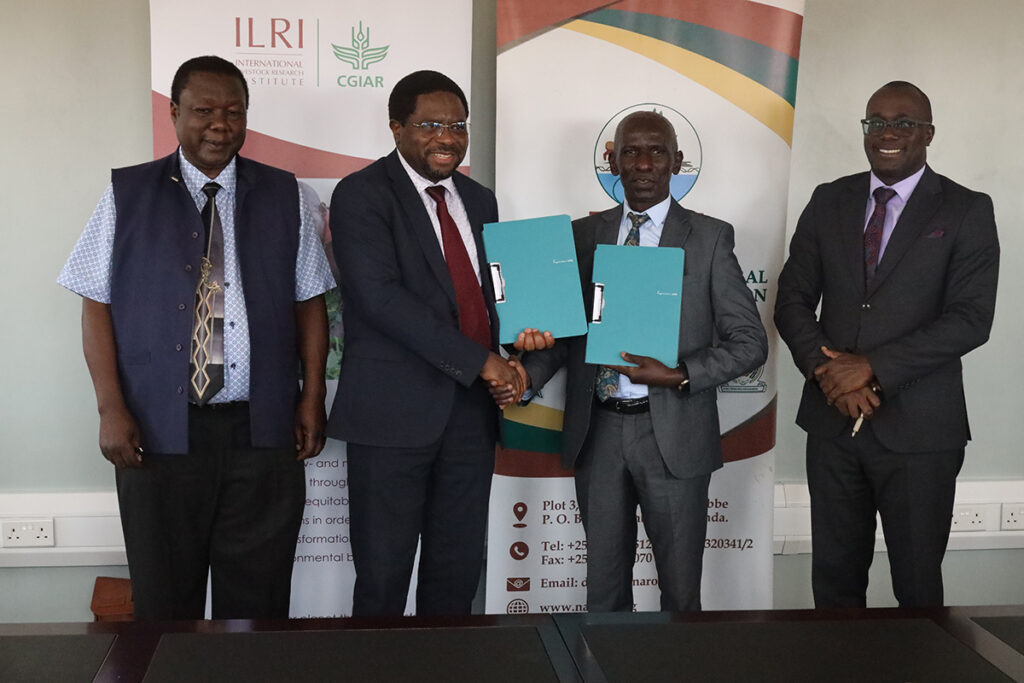To bolster livestock systems in Uganda, the National Agricultural Research Organization (NARO) and the International Livestock Research Institute (ILRI) signed a Memorandum of Understanding (MoU).
This agreement establishes a long-term partnership focused on promoting livestock development through collaborative research, institutional growth, and capacity-building efforts, advancing the missions of both organizations.

The Role of Livestock in Uganda’s Economy
The livestock sector is crucial to Uganda’s economy, contributing approximately 7.5% to the country’s GDP.
Over 70% of households in Uganda are involved in livestock farming, making it a vital component of agricultural production.
Livestock products, such as meat, milk, eggs, hides, and manure, not only meet the nutritional needs of the population but also provide essential raw materials for agro-based industries.
NARO and ILRI: Driving Agricultural Transformation
NARO, a government agency under the Ministry of Agriculture, Animal Industry, and Fisheries, is dedicated to developing and promoting agricultural technologies and innovations that drive commercialization and industrialization, leading to agricultural transformation.
ILRI, part of CGIAR—the world’s largest publicly-funded agrifood systems research network—works to improve lives in the Global South through livestock science, aiming to create equitable and resilient livestock systems that contribute to transforming food systems while delivering climate and environmental benefits.
Leaders Highlight the Importance of Collaboration
Dr. Yona Baguma, Director General of NARO, emphasized the significance of the partnership, stating, “With 72.8% of Ugandan households involved in livestock farming, our collaboration with ILRI, a global leader in livestock research, will enable us to develop and promote technologies and innovations that will expand and commercialize the livestock sector in Uganda.”

Dr. Appolinaire Djikeng, Director General of ILRI, reflected on the long-standing cooperation between the two organizations, saying, “Over the past 12 years, we’ve partnered with various stakeholders in Uganda to reduce poverty through research aimed at the efficient, safe, and sustainable use of livestock.
This renewed collaboration with NARO will build on our past research while exploring new avenues driven by the needs of the Ugandan government and other stakeholders in the livestock sector.”
Focus Areas of the Partnership
The collaboration between NARO and ILRI will target several key areas:
- Animal Nutrition Research: Enhancing the quality and availability of feed.
- Animal and Human Health Research: Focusing on One Health initiatives, including antimicrobial resistance, vaccines, immunization, disease diagnostic tools, food safety, and zoonotic diseases.
- Animal Genetics and Breeding Technologies: Improving livestock breeds for better productivity.
- Sustainable Livestock Systems: Developing technologies and approaches that optimize the economic, social, and environmental roles of livestock.
Capacity Building and Resource Mobilization
The partnership also includes capacity-building initiatives and staff exchange programs to enhance technical expertise. Additionally, the two organizations will work together on collaborative research proposal development to secure funding for joint projects.
A New Chapter in Livestock Research and Development
NARO is represented in this MoU by the National Livestock Resources Research Institute, a semi-autonomous public agricultural research institute.
This new five-year agreement replaces the existing MoU from June 29, 2016, and will automatically renew unless terminated by either party as per the provisions of the agreement.
While the MoU does not entail immediate financial commitments, both parties will seek funding to support the objectives outlined in the partnership.

